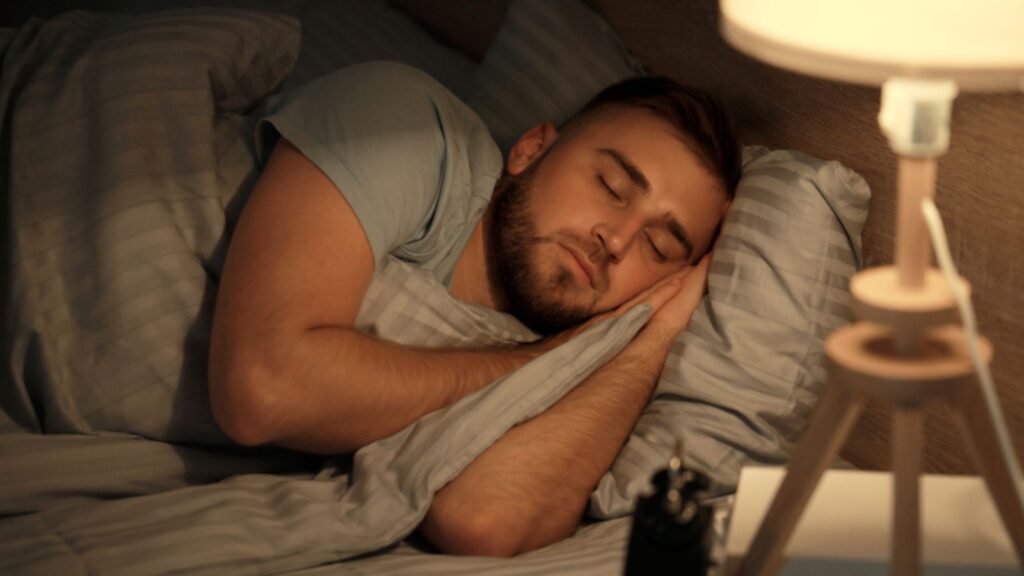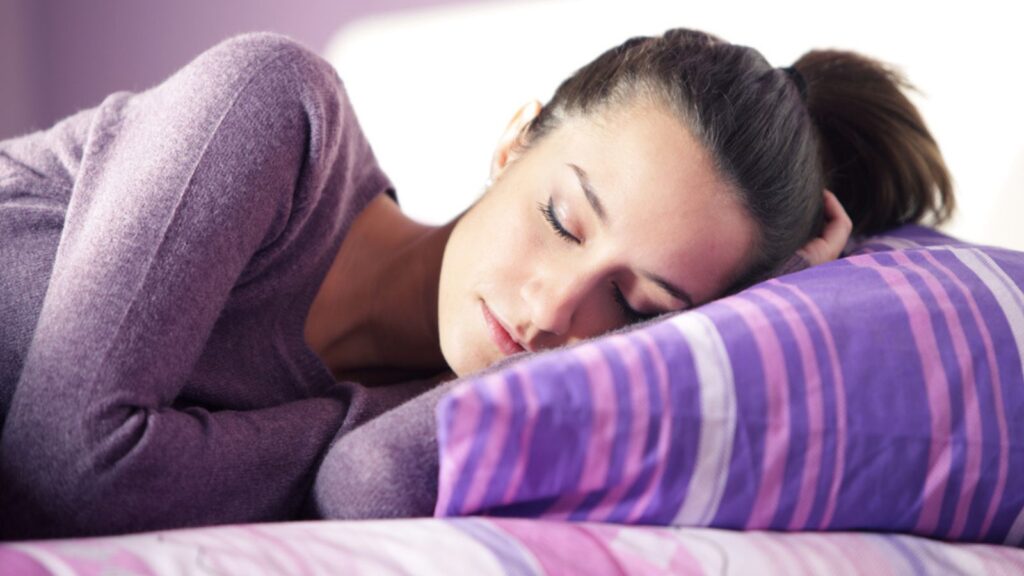14 Proven Tips for Tackling Insomnia and Waking Up Rested
Many individuals grapple with persistent morning grogginess and fatigue, a common challenge often resulting from the elusive quest for a restorative eight hours of sleep. Insomnia can be a frustrating and debilitating issue, affecting both mental and physical health.
Factors such as unrelenting stress, demanding work schedules, and ingrained unhealthy sleep habits can impede the pursuit of restful slumber. However, with persistence and the right approach, sleep woes can be overcome. Here are 14 proven tips (straight from people who have been there) for tackling insomnia and waking up feeling refreshed.
1. Create a Consistent Sleep Schedule

While this tip may seem obvious, people often have trouble following it in the chaos of daily life. Establishing a consistent sleep schedule is crucial for regulating your body’s internal clock.
Try to go to bed and wake up at the same time every day, even on weekends. This helps train your body to expect sleep at a specific time each night. If you get enough sleep each night, you’ll find you don’t need to sleep in until 11 am on Saturdays.
2. Create a Pre-Game for Sleep That Acts as a Trigger

Implementing a pre-sleep ritual can act as a trigger, helping you transition from gaming mode to relaxation- leading to a restful night’s sleep.
This could include dimming the lights, taking a warm bath or shower, listening to relaxing music or practicing deep breathing exercises. Creating a consistent routine before bedtime can signal to your brain that it’s time to wind down and prepare for sleep.
3. Create an Optimal Sleep Environment

You can have a night of uninterrupted sleep by creating an optimal sleep environment. There are little tweaks you can make to your bedrooms to maximize sleep potential.
Make sure your bedroom is dark, quiet, and cool. Use blackout curtains or an eye mask to block out any light, earplugs or white noise machine to drown out any outside noises, and keep the temperature between 60-67 degrees Fahrenheit for optimal sleeping conditions.
4. Follow Andrew Huberman’s Sleep Routine

Andrew Huberman, a neuroscientist and professor at Stanford University, has shared the sleep routine which has helped him overcome insomnia. His approach involves setting a consistent wake-up time and spending time in natural light each morning to help regulate the body’s internal clock.
5. Stop Having Coffee After Lunchtime

Coffee has a half-life of 12 hours. This means that if you have a cup of coffee at 2 p.m., half the caffeine will still be in your system at 2 a.m. Avoiding caffeine after lunchtime can help reduce its impact on sleep quality.
6. Sleep Train Your Kids

While sleep training for your little one may sound impossible sometimes, getting quality sleep is crucial and may require help from a sleep consultant.
People joke that the best way to have a good night’s sleep is never to have children. However, with a consistent sleep schedule and the right strategies, parents can help their children develop healthy sleep habits, leading to better rest for the whole family.
7. Exercise

Exercise has been proven to improve sleep quality and duration thanks to its ability to reduce stress and anxiety. Even moderate exercise, such as a brisk walk or bike ride, can positively impact your sleep.
However, timing is critical here. Exercise in the morning has the greatest impact, but anything is better than nothing. Try to avoid vigorous exercise close to bedtime as it can increase alertness and make it harder to fall asleep.
8. Meditation

Meditation and mindfulness practices have been shown to reduce stress and anxiety and promote relaxation. Incorporating meditation into your daily routine lets you quiet the mind and prepare it for restful sleep. Meditations right before bedtime can help you relax and fall asleep faster.
Many guided meditation apps are available, such as Headspace and Calm, or you can simply sit in silence for a few minutes before bed and focus on your breathing.
9. Do Not Use Your Phone in Bed

Using your phone in bed exposes you to potentially stimulating content, such as social media updates, news, or work-related emails. Engaging with this content can activate your mind, making it difficult to unwind and relax. Plus, the blue light stimulates hormones and other signals, telling you to stay awake rather than unwind. The same goes for TVs and computers!
10. Avoid Alcohol

Some people think drinking alcohol will help with getting to sleep faster and longer. Unfortunately, alcohol affects our sleep cycles and will make you wake up feeling unrested even after getting “enough” sleep.
If you do choose to drink, try to limit it to one or two drinks and avoid drinking close to bedtime.
11. Keep Everything but Sleep Out of the Bedroom

Only sleep and intimacy belong in bed. Everything else (phones, work, potentially even reading) should be done in another room or at least out of bed. This’ll help signal to your body that lying in bed is time for actual sleeping. Plus, as mentioned, keeping electronics out of the bedroom can help reduce exposure to blue light and other stimulating content that can disrupt sleep.
12. Evaluate Your Bed and Pillow

Is it time to ditch that old sagging mattress? Getting a supportive mattress that hugs your spine in all the right places is a must for good sleep. For this reason, a new mattress is recommended every 10 years.
Don’t forget your pillow too. What works for each person will vary so try out a few different mattresses and pillows to see what feels good.
13. Manage Stress

Stress makes it impossible to wind down, inhibiting the release of important sleep hormones like melatonin.
Having an effective way to manage daily stress (exercise, meditation, and other strategies mentioned above) is important. Plus, removing people and activities from your life that are a constant source of stress (when possible) can make all the difference.
14. Time Your Eating and Drinking

Eating a large meal right before bedtime can cause digestive issues, making it harder to fall asleep. Experts suggest avoiding heavy meals within two hours of bedtime. Eating too much sugar or carb-heavy meals close to bedtime will cause blood sugar spikes and crashes that can disrupt sleep.
Additionally, limiting fluids close to bedtime can help prevent the need for frequent bathroom trips during the night. However, make sure you stay hydrated throughout the day to promote overall health and hydration.
Is 6 Hours of Sleep Enough? Here’s What Your Body Does On Different Amounts of Sleep

Sleep is a captivating voyage that holds the key to a healthier and more joyful version of yourself. However, how much sleep a person needs differs from one person to another. However, many people ask, is six hours of sleep enough to sustain us throughout the day? To decipher this question, let’s delve into the effects on our bodies when we undergo different durations of rest.
Is 6 Hours of Sleep Enough? Here’s What Your Body Does On Different Amounts of Sleep
16 Tricks to Calming Your Nerves and Getting a Good Night of Rest (Finally)

Do racing thoughts disrupt your peaceful sleep? Your solution is at hand. Join an online community of members who have shared practical tips to help you quiet your mind and guarantee a peaceful night’s rest!
16 Tricks to Calming Your Nerves and Getting a Good Night of Rest (Finally)


